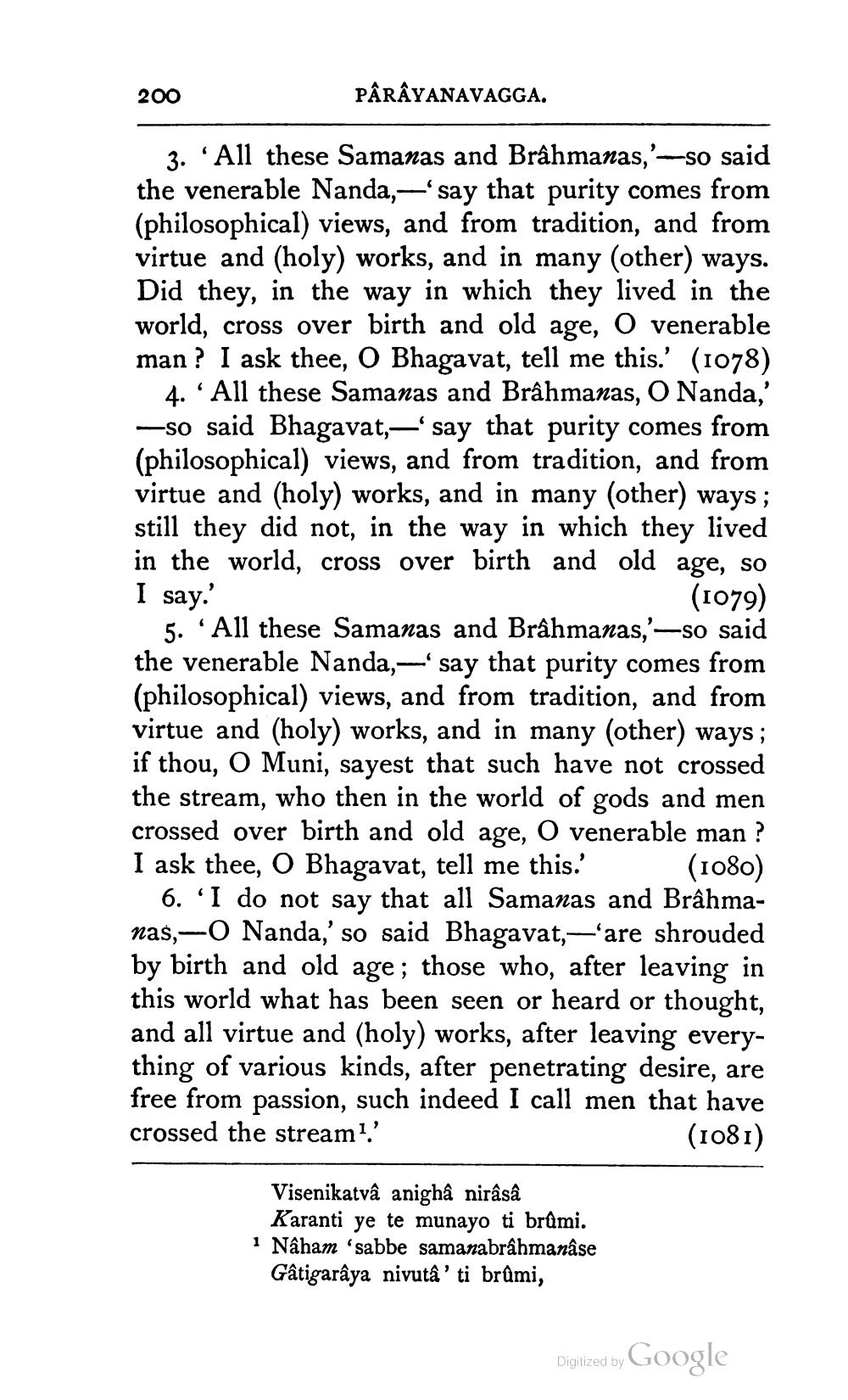________________
PARAYANAVAGGA.
3. All these Samanas and Brahmanas,'-so said the venerable Nanda,—' -say that purity comes from (philosophical) views, and from tradition, and from virtue and (holy) works, and in many (other) ways. Did they, in the way in which they lived in the world, cross over birth and old age, O venerable man? I ask thee, O Bhagavat, tell me this.' (1078) 4. All these Samanas and Brâhmanas, O Nanda,' -so said Bhagavat,—' say that purity comes from (philosophical) views, and from tradition, and from virtue and (holy) works, and in many (other) ways; still they did not, in the way in which they lived in the world, cross over birth and old age, so I say.' (1079)
"
5. All these Samanas and Brahmanas,'- -so said the venerable Nanda,- say that purity comes from (philosophical) views, and from tradition, and from virtue and (holy) works, and in many (other) ways; if thou, O Muni, sayest that such have not crossed the stream, who then in the world of gods and men crossed over birth and old age, O venerable man? I ask thee, O Bhagavat, tell me this.'
(1080)
6. 'I do not say that all Samanas and Brahmanas,-O Nanda,' so said Bhagavat,-'are shrouded by birth and old age; those who, after leaving in this world what has been seen or heard or thought, and all virtue and (holy) works, after leaving everything of various kinds, after penetrating desire, are free from passion, such indeed I call men that have crossed the stream1.' (1081)
200
Visenikatvâ anighâ nirâsâ
Karanti ye te munayo ti brûmi. 1 Nâham 'sabbe samanabrâhmanâse Gâtigarâya nivutâ' ti brûmi,
Digitized by Google




